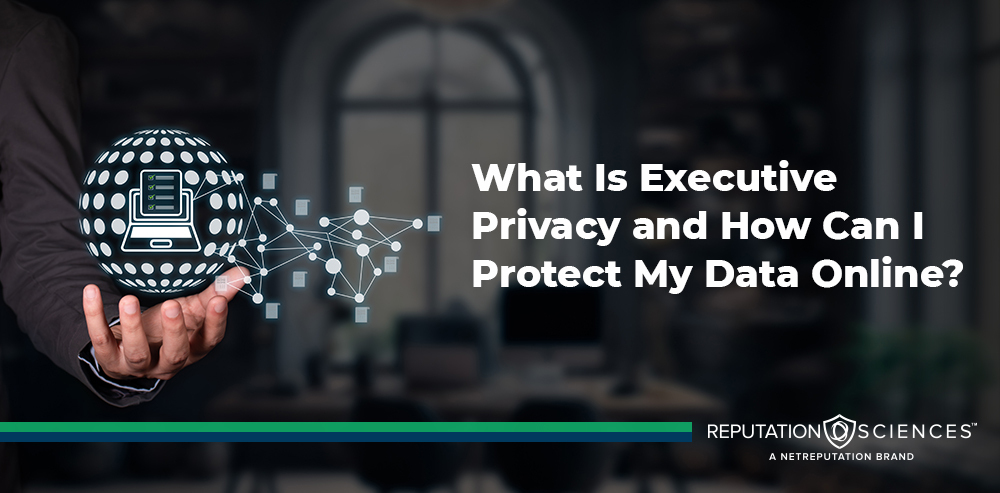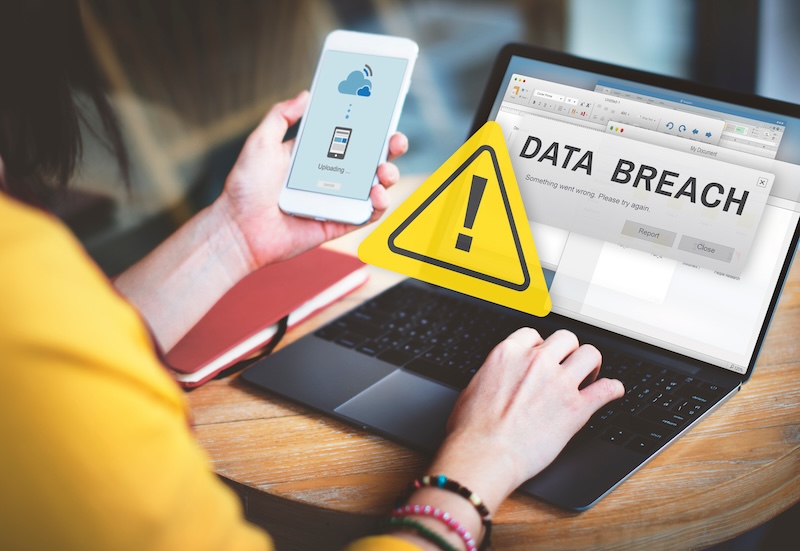What Is Executive Privacy and How Can I Protect My Data Online?

This article discusses executive privacy and what you can do to protect yourself online.
With so many aspects of our lives being lived out digitally, everyone should consider online privacy to be a priority. Business leaders, however, are especially vulnerable to online privacy concerns because they handle sensitive company data all the time.
Today, maintaining executive privacy and protecting corporate leaders present unique challenges.
In this article, we’ll discuss the state of executive privacy today, the risks posed to high-profile individuals, and the best ways to protect yourself from reputation damage and cybercrime.
To speak with an executive privacy expert immediately, call us today at (844) 458-6735 .
What Is Executive Privacy?

Executive privacy refers to the process of protecting the personal data of high-profile individuals, including executives, and keeping them safe from online threats.
This includes protecting their homes, online accounts and private devices, like their computers and phones.
What Are Executive Privacy Services?
The main goals of executive privacy services are to find your personal data online and work to eliminate threats. Services include:
- Internet monitoring to always know if and when personal data becomes available.
- Personal data removal from data brokers and similar websites.
- Compiling detailed reports that reflect the individual’s current level of exposure and protection.
- Offering customized recommendations for staying safe.
These types of services keep leadership members safe by making it difficult for bad actors to gain access to personal data.
Are you in need of online reputation management and executive privacy services? Call us today at (844) 458-6735 to speak with a consultant.
Why Do I Need To Prioritize Executive Privacy?
Prioritizing executive privacy is integral for a number of reasons.
When an executive’s name or personal brand is used for fraudulent purposes, it can result in reputational damage. In more serious cases, individuals can be victims of fraud, such as having their financial assets or identity stolen.
Since executives have access to highly sensitive company information, they make prime targets for hackers who want to commit cybercrimes or steal company data.
What Type of Personal Information is Available Online?

There’s all sorts of personal data online about executives that can be used for criminal activity and other fraudulent purposes.
Here’s where just some of your personal information can be accessed:
People-Search Sites

People search databases gather and display personal information for anyone to search for and find. This information includes the basics, like:
- Full name
- Age and birthdate
- Current address
- Past addresses
- Phone numbers
Additionally, more in-depth people search sites can have criminal records, financial records, property records, information about family members, and more.
Social Media Accounts
Personal and professional social media profiles can harbor more private information than you think.
For example, you may make an effort to never post your location or any private information about you. But hackers may be able to find your exact location from a tiny detail in one of your photos, even if you think nobody will be able to figure out where you live.
Armed with even this small snippet of information, a bad actor can target your home when you’re traveling or attempt to blackmail you by suggesting they know where you live.
Data Breaches

Even if you’ve exercised the utmost control over the personal info that’s available on people search sites and social media, you can’t protect yourself when there’s a data breach.
Data breaches can expose highly sensitive personal information, such as:
- Bank account numbers
- Healthcare information
- Social Security numbers
They can also expose corporate data, including financial information, intellectual property records, and customer data.
Common Types of Online Threats to Executive Privacy
There are numerous ways that executive privacy can be threatened and attacked. Let’s go over some of them.
Financial Fraud

High-income executives commonly have multiple financial accounts, putting them at risk for finance-focused identity theft.
When a hacker finds out enough personal information about an individual, they may be able to convince someone at a financial institution that they’re speaking with the account holder.
The identity thief may then be able to update the person’s contact information and have new debit or credit cards sent to their address.
Information Security Threats

One of the biggest reasons why executives are commonly targeted in cyberattacks is because they have so much access to databases and documents.
If the company hasn’t prioritized cybersecurity, it’s particularly easy for a hacker to access this sensitive information.
Information security risks include account takeovers, corporate espionage, and social engineering. Let’s discuss social engineering a bit more since it’s so common.
Social Engineering: Phishing and Whaling
When discussing executive privacy and information security, social engineering refers to the deceptive practice of using confidential or personal data for fraudulent purposes.
There are two main types of social engineering attacks:
- Phishing: This is when personalized messages are sent via email or text to executives. The goal is to trick the execs into revealing confidential data. It’s also common for hackers to install malware on executives’ devices.
- Whaling: This occurs when a hacker sends deceptive messages pretending to be high-profile leaders at companies. The messages may be sent to other execs or to clients.
In both types of social engineering attacks, the attacker uses the confidential information they collected to make their messages sound authentic to their targets. By creating a false sense of security, cybercriminals are able to gather even more data than they already have.
Personal Threats: Doxxing, Harassment and Swatting

With so many people search sites available, it’s easier than ever than find a person’s phone number and home address. Even a simple Google search can return this information without having to access a data broker site.
When a person’s private information is exposed, they’re at risk of real-life dangers.
Doxxing
Doxxing is when a person’s private information is publicized online, typically on social media and other easily accessible platforms. The purpose of publishing this information is to embarrass or shame the individual.
Often, hackers will use doxxing to help others attack the individual. This is common when it comes to people who have differing viewpoints. Doxxing is commonly used as a way to take down someone who doesn’t agree with a certain belief system.
Harassment
Online harassment can quickly escalate to in-person harassment and danger. Inappropriate emails or phone calls can easily lead to a disgruntled customer, client or ex-employee showing up at your house.
Even more serious criminal activity can take place. Once someone finds out where you live, they can look up floor plans and other details online to plan a way into your home without you realizing it. They can also stalk you to watch your daily routine and make plans for breaking in or worse.
Swatting
Swatting is a serious and dangerous practice that fraudulently sends law enforcement officers, usually a SWAT team, after an individual.
A hoax call is made to the authorities, claiming that an executive is engaging in illegal activity. Armed officers are then dispatched to the individual’s location without knowing that the call was a prank.
Protect Your Personal Data With ORM Services
Corporate executives have a responsibility to protect their personal data and the confidential information they have access to through their company. This means protecting the sensitive personal information of customers, clients, other execs and even family members.
Aside from online threats, executive privacy concerns can lead to real-life danger. That puts you and your loved ones at risk.
With NetReputation and Reputation Sciences working on your behalf, you can gain invaluable insight into your digital presence and level of online security. We’ll work with you to customize the executive protection services you need so that your personal devices, family members and online privacy stay safe.
Contact us today at (844) 458-6735 to speak with an online reputation management and executive privacy expert.
